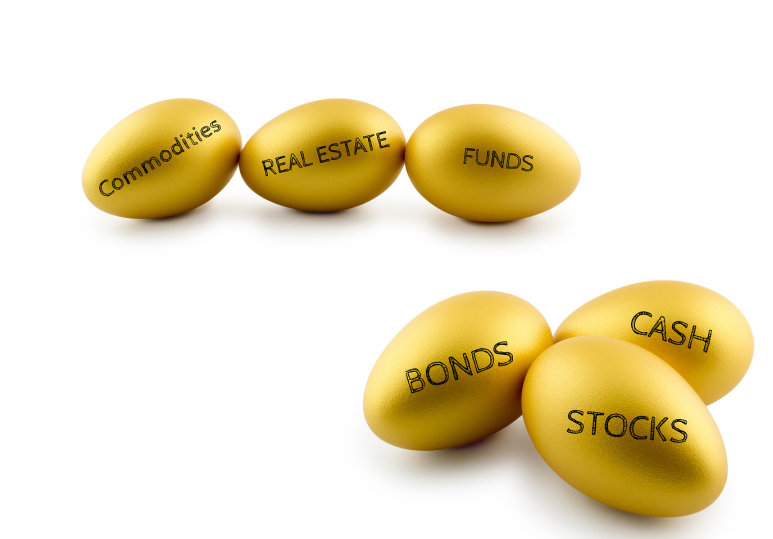Everyone wants to make money from their investments and it's easier to do if you can follow a plan. Understanding your behaviour is key to successful investing. Most of what we do each day is based on habits and mental shortcuts our brains have developed.
Here are a few that relate to investing, especially during your retirement years.
Linear thinking. We think in terms of straight lines. If something is going in one direction we think it will continue to go in that direction. If house prices are going up, they will continue to go up. If the stock market is going down it will continue to go down. The truth, however, is that just about everything goes in cycles. The economy goes in the cycle of recession, growth, peak, trough, recession. House prices go in cycles. The animal kingdom operates on the same principle.
Chasing performance. Imagine you have 3 investments and one earns 14%, one earns zero and the 3rd has a -9% return. Instinctively, you would want to sell the loser and buy more of the winner. We do this because we think that the winner will continue to go up in value.
Mental framing. Let's say you are in the market for some new running shoes and you find a pair for $50, but you then notice an advertisement of the same shoes at a store across the city for only $25. That's a 50% savings. So, would you drive across town to save $25? Most people would. However, let's say that you are in the market for a couch set that costs $3000. Would you drive across town to save $25? It's the same amount of money, but in our minds, we frame things differently. We do the same thing with our investments. Our decisions are based on the research that we listen to, which is usually the media. If the markets are down, the media commentary is negative and it will always be negative. They will go out of their way to find the most pessimistic advisor to support their perspective. The opposite happens after a few good days on the markets.
Overconfidence. Because we think in straight lines, we can become overconfident when things are going up and begin to think that our good fortune is the result of our good investment skills. At that point, we tend to only listen to and seek out information that confirms our bias. This is also called, confirmation bias - we only listen to information that confirms what we already believe. Alternatively, when the markets correct, as they always do, we feel ripped off and uncertain in our abilities after all.
Fear of loss. We feel the pain of loss far greater than we do the gratification of gain. Realizing that you have lost the $50 bill in your wallet is far worse than the joy of finding a $50 bill on the street. How does this affect our investment decisions? Well, our appetite for risk is far greater when the markets are going up. When the markets are heading south, we quickly become risk-averse. This leads to the reality of what most people do - buy high and sell low. The reality is that we should be more inclined towards risk when the markets are down, not up. Warren Buffet puts it this way: "Be fearful when others are greedy and greedy when others are fearful."
Confirmation bias. This is where we seek out and only listen to information that confirms what we already believe. If we believe that the economy is bad, we read, listen to, and pay attention to anything that confirms that perspective. Most of our decisions in life are based on our beliefs, not knowledge.
Herd Bias. Sometimes called the fear of missing out. What it is: The tendency for people to follow the crowd rather than basing investment decisions on their own analysis. An investor with herd bias will invariably be attracted to the most recent hot stock (or sector or fund) or property. Overweights the opinion of the majority and nuts or sells solely because everyone else is.
Anchoring. When an investment attains a certain high value we anchor to that number and believe that its worth is now attributed to that number and we believe to sell it for anything less is to sell at a loss. Most homeowners are guilty of this bias and struggle with selling their home when market conditions change.
When you have to make investment decisions on buying, holding, or selling your investments it is a good idea to discuss your options with someone who can take a more objective perspective. Often speaking with a professional can help you analyze your choices and help you make a confident decision.
Drawing an income from your life's savings requires a different approach than what you used to grow those savings.
As you move into retirement you need to create a different income strategy with a focus to simplify and consolidate your portfolio so that you have fewer decisions to make on a regular basis.
How can we help?
We are a husband and wife team and we work exclusively with financially successful individuals over age 55 who want to get their total financial house in order, get you on the same page, and start living the life they have always dreamed about. We want to help you - to get on with it.
Click Here to learn more about our process for getting your total financial house in order, creating your financial roadmap for retirement, and living a life that inspires you.
Retirement Income, Investment, & Tax Planning Exclusively for Those 55+
Willis J Langford BA, MA, CFP
Nancy Langford CRS
Life is Short. Retire. Be Happy!







